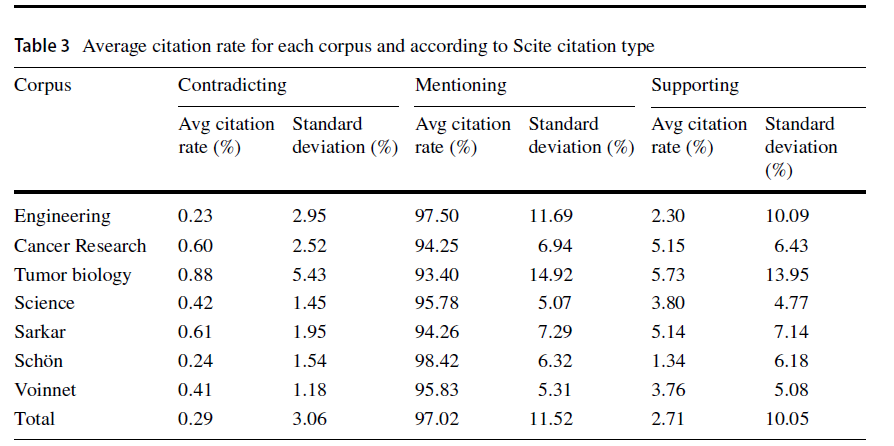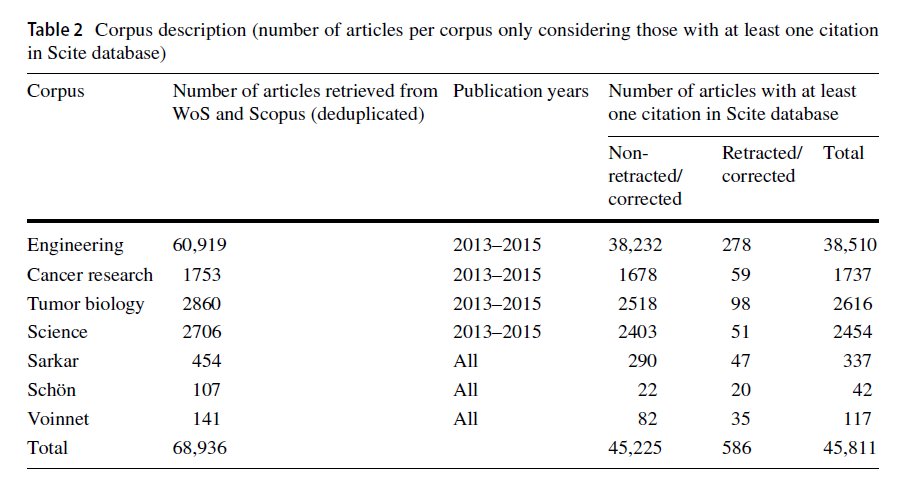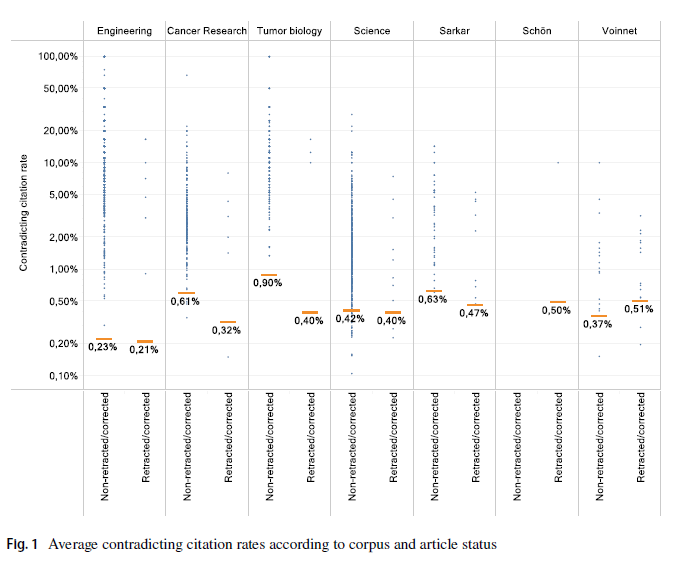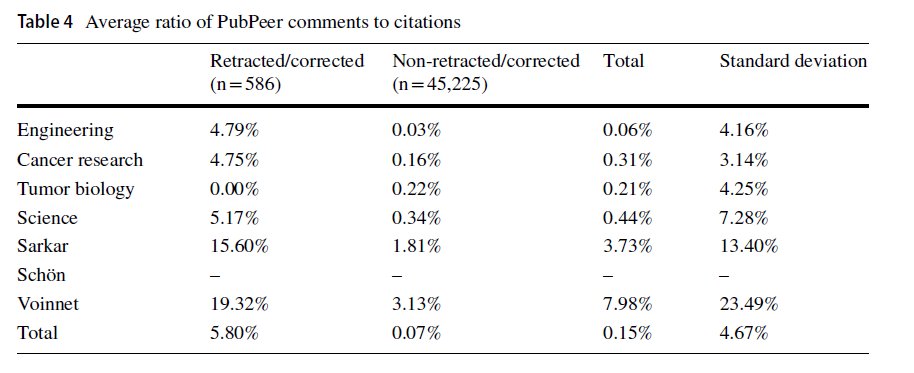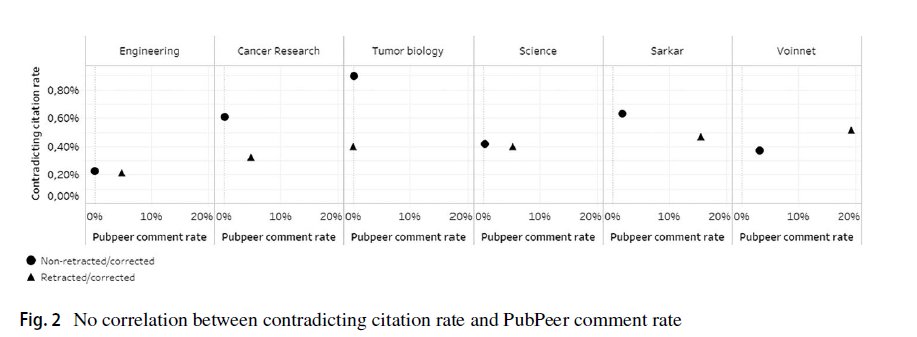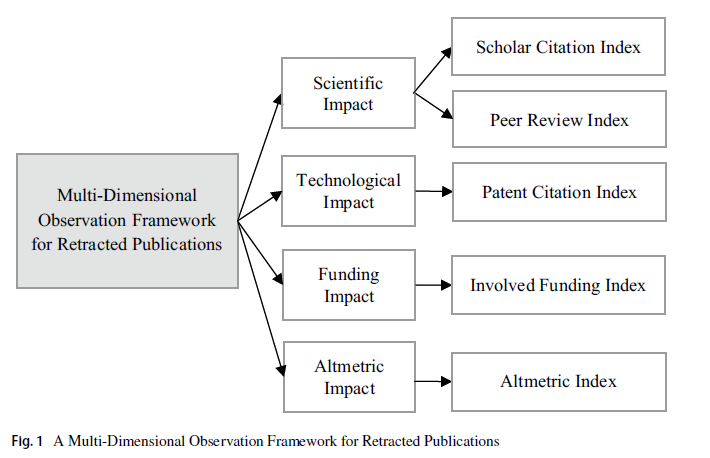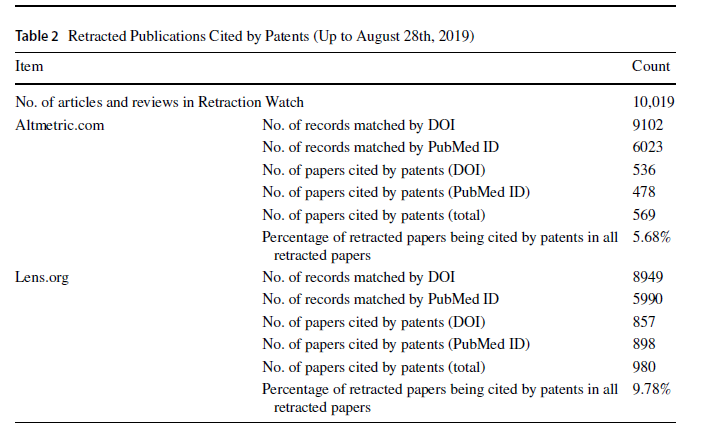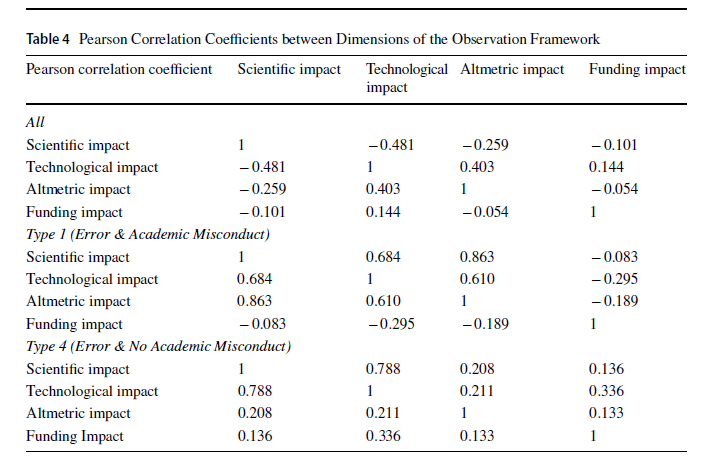[Read] Self-correction of science: a comparative study of negative citations and post-publication peer review https://link.springer.com/article/10.1007/s11192-020-03536-z
Selected engineering titles from Scopus ASJC & journals Cancer Research, Tumor Biology and Science & queried Scopus/WOS 2012-2015. Also query Sarkar, Schön and Voinnet, 3 authors "whose substantial part of their work has been officially retracted or corrected", no date limitation
7 corpus with no. of retracted articles. Retractions identified using WoS & Scopus & "cross-checked with RetractionWatch database.", if article has erratum notices and is retracted is tagged as retracted. Also extracted contradicting cites in @scite, comments in @PubPeer
Major finding across all 7 corpus (engineering discipline, 3 titles and works of 3 authors that are substantially retracted), "On the whole, these results show that negative citations are not more frequent towards retracted or corrected articles"
No. of pubpeer comments look more promising, on average there seems to be more comments for retracted/corrected articles (particularly for specific author corpus that end of retracted). Also no. of pubpeer commons are not correlated with contradicting cites.
The authors suggest that negative "contradicting" (now renamed as "disputing" in scite) citations might not be common "for fear of consequences" (aka making enemies), while Pubpeer which allows anonymity - makes it more likely for comments to be made, which provides a signal...
Interesting implications, ref managers like Zotero have features to check for retractions, but for even better signals to know if you citing a controversial paper that might be retracted - zotero pubpeer plugin might also be useful - https://github.com/PubPeerFoundation/pubpeer_zotero_plugin/releases/tag/v0.0.6 h/t @adam42smith
Another related paper on retractions recently is "An observation framework for retracted publications in multiple dimensions" - https://link.springer.com/article/10.1007/s11192-020-03702-3
Nice paper discussing different ways of classifying "retraction reasons" in the end they use retraction watch database labels to classify into 4 types 2x2 grid of Scientific error Y/N vs Academic misconduct Y/N.
As per title of the paper, the framework they suggest on retractions effect covers "Scientific impact" , "Technological impact", "Funding impact" and "Altmetric impact"
For scientific impact of retractions they measure a hybrid metric made out of Web of Science citations to the retraction and recommendations from F1000 (1-3 stars). Because this measures "impact" they do not try to distingush between positive/neutral or negative cites.
For technological impact of retracted papers = no of patents citing work via @altmetric & @TheLensOrg . Later was more complete so just used that. Note: they "did not count the number of patents in 1 patent family as 1 citation" as larger patent family is considered more impt.
Funding impact of retracted papers is interesting. They use "number of projects or grants involved in
the funding field of a paper in the database" from @DSDimensions API. Might be better to get amt of funding as measure of impact, but data mostly unavailable. IMHO a pity.
the funding field of a paper in the database" from @DSDimensions API. Might be better to get amt of funding as measure of impact, but data mostly unavailable. IMHO a pity.
For this study, they looked for retracted papers in "Cell" and "Lancet" used as keywords in the journal field for retraction watch database - found 63 (updated to June 2020).

 Read on Twitter
Read on Twitter